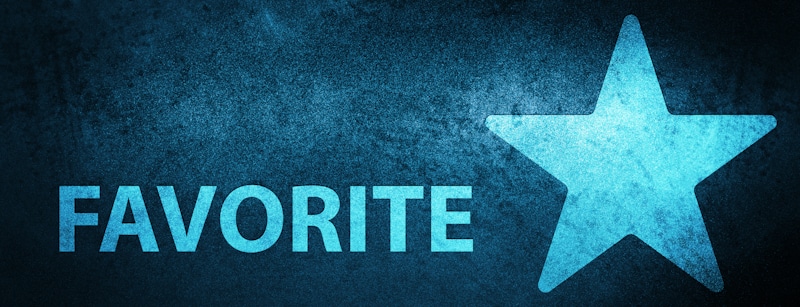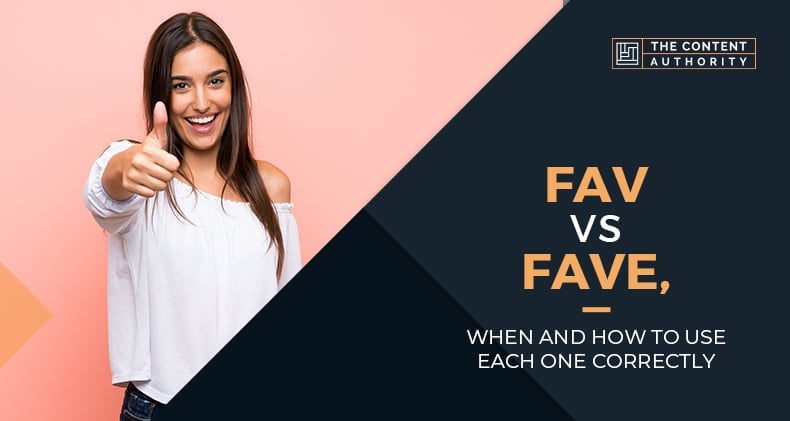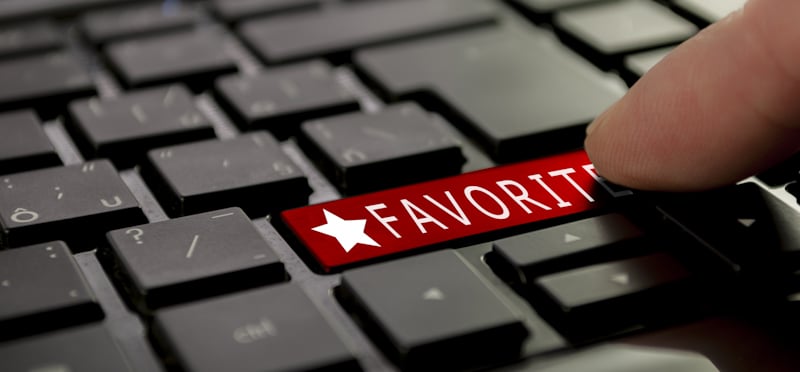When writing or speaking in English, we always want to use terms correctly, and knowing the differences between words is crucial to do so. In this article, we will discuss more about the words “fav” and “fave.” You probably have seen them before and wondered what the differences are and how you should use them.
“Fav” and “Fave” are short terms derived from the word favorite. People use both terms interchangeably. You can use them as a noun, adjective, or verb. Additionally, you will most likely see these expressions on social media platforms and informal conversations.
With the rise of social media, we have seen how people shorten words and expressions. As a result, slang is at its peak, and if you don’t want to be outdated, you must understand how new generations use the language.
Understanding The Terms “Fav” And “Fave”
As we already mentioned, “fav” and “fave” come from the English words favorite (US) and favourite (UK). Now, let’s take a look at their etymology, how people use these terms in conversations.
Etymology
Diverse sources suggest that the word fave originated in 1938. But when it comes to the word “fav,” we couldn’t find information referring to its origin. One reason for this could be the fact that the term “fav” is less common than the first.
On the other hand, the word favorite comes from Latin “favere.” It means to show sympathy towards something.
Meaning
The meaning of the terms “fav” and “fave” are related to the word “favorite.” You can use it as a noun, adjective, or verb.
- As a noun, it means something or someone that is preferred.
- As an adjective, people relate it to something that we cherish.
- In the technological era, “favorite” is also considered a verb. People use it to refer to the action of marking certain content they like.
How People Use Them
“Fav” and “fave” are slang terms. It means you should use them in informal settings. However, it would be best if you don’t replace the word “favorite” in a formal conversation because it may confuse the other party.
Now let’s see where people use these terms.
In Social Media
Instagram users have used the hashtag #fave more than 2 million times. If you look at the posts related to it, you will find many food pictures.
On Twitter and Instagram, you can find other popular hashtag combinations such as #FaveChoreography, #FaveArtistTop15, and #FaveHandMade.
On the other hand, the hashtag #fav appears in more than 4 million Instagram posts! This one is way more popular, and the posts you see are photos of people. Other related hashtags you can find on Instagram are #favsong, #favseason, and #favstyle.

In Conversations
Since people don’t know exactly where these words came from, it is hard to dictate the correct pronunciation.
People argue about the way we should pronounce fave. Some linguistics claim it should have the same vowel sound as in the word save. However, some people argue we have exceptions to this rule, which is the case with the word have. Anyway, if you look for this term in the dictionary, the pronunciation will be /feɪv/.
Using “Fav” And “Fave” In A Sentence
Here we have some examples using the terms fav and fave.
- I thought I would like it because spicy food is my fave, but this dish was too hot for me.
- The board was trying to decide who to promote; let me tell you, John is the fav.
- Apparently, Mary didn’t know she was using my account when she faved this video.
Other Similar Terms
Here are other similar terms related to “favorite.”
- Beloved
- Treasured
- Cherished
- Adored
- Precious
- Esteemed
- Admired
Here we have a few terms you can use to imply the opposite of the word “favorite.”
- Disliked
- Loathed
- Unpopular
Other Terms Related To Favorite
Here are some terms using the word “favorite” that can be useful in conversations:
- Play favorites; you can use this phrase when someone gives special treatment to someone else.
- Favorite daughter or son; a politician who people in its hometown highly regard.
- Odds-on favorite; this expression is used in sports to describe a team or contestant that people believe is most likely to win.
Where Do These Terms Come From?
People’s conversations on social media can be confusing. Sometimes we see posts, SMS, or private messages and don’t understand what people are saying. But abbreviations are not exclusive to social media. Even in our workplaces, we come across weird acronyms. People need to have everything shortened nowadays. Fave and Fav are not exceptions. We don’t know for sure about their origins. But we can assume it has to do with the immediateness of today’s world.
It is easier to write three to four letters to express your preference for something instead of writing eight characters to say favorite. If you think about it, you are saving some time and space. Twitter used to have a limit of 140 characters, and the average tweet is 33 characters, so people found creative ways to squeeze their ideas into these small messages.
If you think about using the word in conversations, “favorite” has three vowel sounds. There’s certainly a difference when comparing it to the single vowel sound you find in “fav” or “fave.”
Frequently Asked Questions
Is Fav Slang?
Yes, Fav and Fave are slang for the word “favorite” or “favourite.”
Are There Other Slang Words That Mean “Favorite”?
Here’s a list of other informal terms people use instead of the word “favorite.”
- Blue-eyed boy
- Jewel
- Apple of one’s eyes
Other Uses Of The Word Fave
The word fave appears in other uses. We have created a list of cases where you can see the word:
- “Fave” is the name of an Asian financial service company. They offer services to Singapore, Malaysia, Indonesia, and India.
- On Youtube, we found the channel named “Fave.” The creator has more than 400 thousand subscribers, and its content is mainly gaming videos which they also use to make Instagram reels
Our Two Cents In The Matter
You can use these words in informal conversations and social media posts. But don’t get too excited about it because this term is considered slang, as you probably already know.
Suppose you are working on a marketing campaign for a brand whose identity includes catching the attention of a young audience. In that case, you are ready to use this term, primarily if you use it as hashtags because they have a broad audience.
But if you are working on a brand that expects to reach a more mature public, you are better leaving these abbreviations out. Abbreviations and acronyms are not considered formal and can confuse your audience.

For example, FAV also stands for:
- Fast Attack Vehicle, an acronym used in the military
- Final Acute Value, which is a term used when people talk about environmental contamination.
- Foveal Avascular Zone, an abbreviation used in ophthalmology
Other acronyms include:
- Favorable
- First Article Verification
- Fully Armored Vehicle
Final Thoughts About The Terms Fav And Fave
People consider both of these terms to be slang. We see how social media has become a place where people feel comfortable sharing their ideas and opinions. The internet has transformed the way we communicate. We often think the main revolution has been how fast information travels from point A to B. But the reality is, even our language is changing thanks to the internet.
It is incredible how “Google” has become a verb and how people shorten words to convey the same meaning. We hope this information helps you better understand the texts we see on social media.
Shawn Manaher is the founder and CEO of The Content Authority. He’s one part content manager, one part writing ninja organizer, and two parts leader of top content creators. You don’t even want to know what he calls pancakes.


